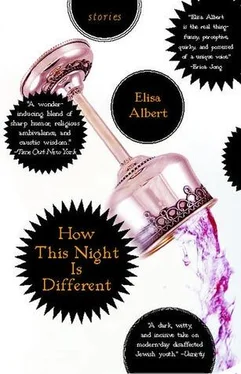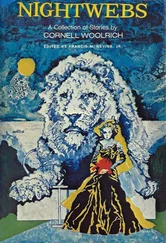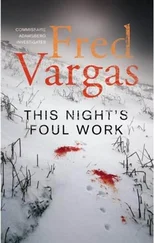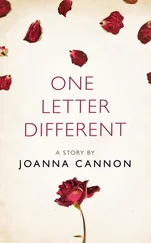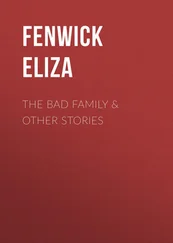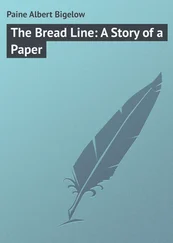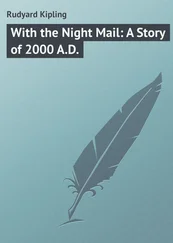I like pretending that Tulip is my dog, that this is my house we are leaving to go on our walk, that it is Neil who died the day before yesterday, that it is my time to be sad about Neil. I would really like to be the kind of person who has a dog, who walks the dog, who wears these sleek black funeral clothes with such grace and ease on a sunny afternoon walk around the block, whose dad is actually dead and not just gone.
So I invent: My name is Juanita and I have eight brothers and sisters and a concave stomach and a boyfriend in the eleventh grade, in a band. And then I revise: It is my father who is dead today, and I have cried with restrained fury and sorrow all morning, I am exhausted with the effort it took to make it through, and now I am on a walk with my faithful only friend, Tulip.
It strikes me suddenly that I am walking the dead man’s dog. How close I am to the dead man himself! My father was allergic to dogs, but what if we’d had one? Then there’d be something left, a direct link to Neil. Neil’s best friend. The leash yanks Tulip slightly backward as I come to a near stop, making it seem as if she were flinching at something or someone. A ghost, perhaps: Howard, dancing, twirling, floating up to some clear-arteried heaven.
This is a nice neighborhood. “Nouveau riche,” my mother hissed at me as we drove through here earlier today. Our neighborhood is older, not as repetitive and planned as this one. “The landscaping says it all,” she said, flat and harsh as the street itself. She said she couldn’t understand why Brenda and Howard would choose to move here, to this provincial suburban nightmare of wide sidewalks and wider-open spaces above and around each pink pastry of a house. Good schools for Danny or no.
But everything seems even and right as I walk with Tulip. I imagine that Tulip and I are in a play. The scenery behind us, painted on a long sheet of butcher paper like the kind they used to cover the tables during art in kindergarten, is rolling by slowly while we move our legs in place. It is a stage trick, an illusion. It is better than reality.
Truthfully I half-expected Danny to fall into my arms this morning. I really wouldn’t have minded if he’d buried his head in my breast and gotten snot on my dress in a fit of anguish. It stung, like a stubbed toe, when he looked past me, eyes focused on some distant, fascinating point, and only nodded slightly at my mother. I wished I didn’t know him in his dark gray suit, so that I could look at him and not see him at nine, picking his nose. I wished I could take him out of context. The sight of him (serious as a heart attack, trying to keep his balance while sidestepping headstones) pinned me to myself, made me claustrophobic, closed up in a plain pine box for good. It’s hard to take death seriously in the thick of it. Years of TV funerals take over and play themselves out: the downcast mouths, subdued gestures, understanding nods. I looked at the sky, I wondered if I still had any lipstick on, I pretended we were burying a time capsule.
My own father’s departure was too long ago to be of any benefit to me now, and it wasn’t even the right kind of departure. I get no sympathy when it matters; none of my high school teachers put their arms around me and tell me to finish my American History paper whenever I can, no rush. But I still want the clout I deserve. My father’s gone, too, I fiercely and silently tell Danny. Don’t think you’re the only one. But he ignored me this morning, standing off by himself a bit, body language telling everyone to fuck off.
“Danny needs to learn that he does not have a monopoly on tragedy,” said my mother on the way through the gates of the cemetery; the worst over, the Mexican men left to pile dirt onto the casket, each thwack! of earth on wood like a heartbeat in the sinuses when you have a headache.
Danny looked a lot like his dead father. I thought it might make sense for my mother to envy Brenda that, a dead ringer for her dead husband. Dead, dead, dead, dead, I have to keep reminding myself. I’m finding it necessary to rehash Howard in my head: a father, a husband, a wearer of arrow-collar polyester shirts, bemoaner of conservative politics. He grew his hair long in the back to reimburse his ego for the thinning on top. I remembered him commenting on my breasts a few times ( Filling out nicely, aren’t we, Jill? ). Dead of a heart attack at fifty-something. Survived by a wife and a look-alike adolescent son and indifferent, confused dog wondering at abandonment and the smell of the hand that fed her.
My reverie ends abruptly when Tulip squats and begins to pee in some shrubbery. “Tulip,” I say, “where are your manners?”
Then I am no longer Juanita, I am Jill. And I don’t have any siblings, it’s just me and my mother in our musty, formal dining room, eating dinner on weeknights in silence. And my father isn’t dead, he’s just gone. And this is a dead man’s dog relieving herself in someone’s ficus. All at once I am sweaty and my back hurts and I realize we have been gone a while. I feel illogically as if I will be in trouble.
A brief but spectacular wave of panic submerges me: Where am I? These houses all look the same and it’s weirdly quiet. I turn in a slow circle, trying to orient myself by a lawn ornament, an unusually colored car, someone else in black, maybe carrying an aluminum-foiled casserole for the freezer of the dead man’s family. But it is so quiet. I give Tulip’s leash a yank and she reluctantly follows me. I am in a hurry now.
It is comical to be scurrying along calm suburban sidewalks like a city secretary in sneakers and stockings on her way to work, arms pumping. Tulip knows how comical it is, and she mocks me with her limp, bouncing tongue. But I am looking, looking, looking for something that will tell me how to get back to the dead man’s house and the dead man’s mourners. Perhaps I myself would not be missed, but Tulip is a faithful friend, and she is needed at that house, by those mourners.
I round corners with ridiculous intensity, like a medieval adventurer in a maze, making haphazard decisions that will lead me nowhere.
I end up on a fairly busy large street. There are three lanes in each direction on either side of a long, thin concrete island. The houses that stand defiantly facing this street look battered and brave, like people who refuse to take Prozac. The suburban dream of a few blocks past seems theoretical, phony, cowardly.
I am still confused and worried about finding my way back, imagining Danny looking for his dead father’s dog and not finding her, but the whoosh! of passing cars lulls me into complacency, and I ease back into a stroll, thinking: Fuck Danny. I deserve a dog, too.
Tulip does not seem to like the cars and the noise and the haste of this street. She is a product of fraudulent tranquillity, and this is all too much, too fast. So she begins to run, faster than she would on a precoronary morning jog with Howard, the dead man. She runs faster now than she would on the familiar, suburban streets that really are just a few blocks away from this honking, this tailpipe stench, this foolish race toward the next red light. She runs faster than I can, although I try, sweaty and hopeless, the strap of her leash welting my right palm. She is spooked, and I allow myself to hope for a split second that sandpaper-faced, sweetly stinking Neil will show up in a white robe or something, and shoot her.
I can’t keep up. My chest feels tight and too small, like Brenda’s today, like my mother’s might have, way back when, if only Neil had died. I let go of the leash and feel free, weightless, as if I’ve stepped onto a moving sidewalk. Tulip runs on, looking beautiful and completely out of place, her golden ears and leash flapping behind her as she gallops down the street, until I can no longer see her. And then I feel catheterized and clean. There is a blossoming somewhere near my heart full of relief and pain, eclipsing worry. Tulip is gone, and I am left with this weightlessness, the passing cars like the sound of an intense wind. My mother’s voice is as clear as water: She could get hit by a car. What if she can’t find her way home? For God’s sake, Jill, why can’t you do anything right? Howard had that dog for years. And then she is quieted by a huge passing truck and a trail of brown exhaust, which also disappears.
Читать дальше
